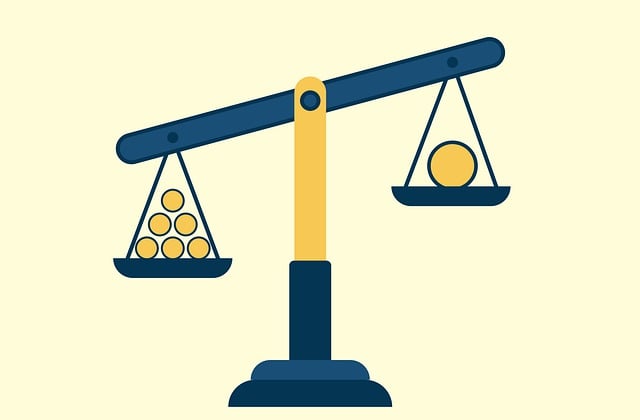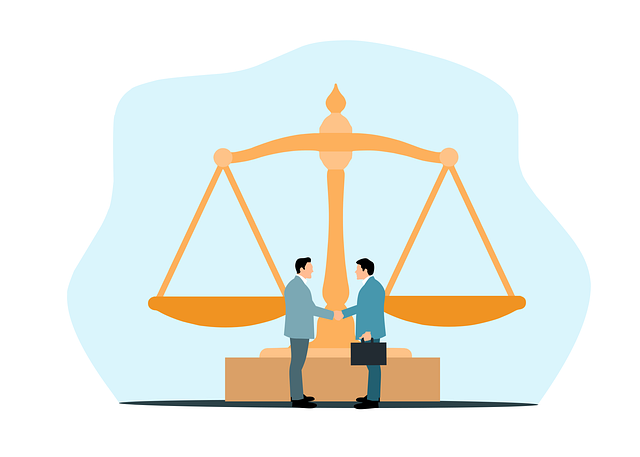Litigation resolves disputes through legal processes in courts, with exchange regulation compliance requirements crucial for fairness and due process, especially in white-collar and economic crimes. Compliance is vital for avoiding contract disputes, personal injury claims under tort law, intellectual property (IP) issues, and white-collar defense risks, preventing penalties, lawsuits, and reputational damage. Understanding these requirements is key to navigating complex legal terrain ethically.
Litigation Types: Navigating Legal Disputes from Contract Breaches to Intellectual Property Protection
In today’s complex legal landscape, understanding various litigation types is crucial for businesses and individuals alike. This article unpacks key legal disputes, including contract breaches and remedies, personal injury claims under torts law, protection of creative works through intellectual property laws, and the significance of exchange regulation compliance requirements. By delving into these areas, readers gain insights to navigate legal challenges effectively.
- Defining Litigation: Legal Disputes Unpacked
- Contract Disputes: Breach and Remedies
- Torts Law: Personal Injury Claims
- Intellectual Property: Protecting Creative Works
- Regulatory Compliance: Avoiding Legal Pitfalls
Defining Litigation: Legal Disputes Unpacked

Litigation refers to the legal process where parties resolve disputes through a court of law. It’s a fundamental aspect of the justice system, ensuring that conflicts are addressed and resolved in a structured manner. When a disagreement arises between individuals, businesses, or organizations, litigation becomes an avenue for seeking remedies and finding a resolution. Understanding exchange regulation compliance requirements is crucial, especially in cases involving white-collar and economic crimes, where corporate and individual clients may be implicated.
The process involves all stages of the investigative and enforcement process, from initial filing to trial and subsequent appeals. Each stage is designed to ensure fairness, provide due process, and lead to a just outcome. Whether it’s a contract dispute, employment matter, or complex financial crime case, litigation offers a framework for presenting evidence, arguing legal points, and ultimately reaching a verdict or settlement.
Contract Disputes: Breach and Remedies

Contract disputes are a common legal issue that can arise from breaches of agreement terms. When a party fails to fulfill their contractual obligations, it can lead to significant consequences and potential litigation. Understanding exchange regulation compliance requirements is crucial for businesses and individuals alike to avoid such disputes. These regulations ensure fair practices and protect all parties involved in a contract.
Breach of contract cases often involve complex legal arguments where both corporate and individual clients must present their defenses or claims. Remedies for breach can range from monetary damages to specific performance, depending on the nature of the dispute. For instance, if a company fails to deliver goods as promised, a client might seek compensation for the financial loss incurred. Alternatively, in cases where performance is impossible or impractical, a court may order specific performance, enforcing the contract as intended.
Torts Law: Personal Injury Claims

In the realm of Torts Law, personal injury claims play a pivotal role in ensuring Exchange Regulation Compliance Requirements. When individuals suffer harm due to another party’s negligence or intentional actions, they have the right to seek justice and compensation. These claims encompass a wide range of situations, from motor vehicle accidents to medical malpractice, each demanding a nuanced understanding of the law. By holding responsible parties accountable, tort law not only provides for the victim’s immediate needs but also serves as a deterrent, encouraging individuals and entities to exercise reasonable care to prevent similar injuries in the future.
For his clients, achieving extraordinary results in personal injury cases often requires navigating complex legal landscapes and presenting compelling evidence. Skilled attorneys dedicated to winning challenging defense verdicts understand that success hinges on meticulous preparation, strategic advocacy, and a deep appreciation for both the complexities of the law and the human element involved. This holistic approach ensures that clients not only receive fair compensation but also access the resources necessary to achieve a true metamorphosis after their traumatic experiences.
Intellectual Property: Protecting Creative Works

Intellectual Property disputes often involve protecting creative works such as art, music, literature, and inventions. These high-stakes cases require a deep understanding of exchange regulation compliance requirements to ensure that rights are secured and maintained. For both corporate and individual clients, navigating these complexities is crucial in safeguarding their intellectual assets, which can be a game-changer in competitive markets.
In the realm of white collar defense, IP laws play a significant role in mitigating risks associated with trade secrets, patents, trademarks, and copyrights. Professionals must adhere to strict regulations to avoid misappropriation or infringement, especially in fast-paced industries where ideas can quickly become commodities. This involves meticulous record-keeping, secure handling of sensitive information, and proactive measures to protect against unauthorized use, ensuring compliance is key to avoiding costly litigation.
Regulatory Compliance: Avoiding Legal Pitfalls

Regulatory compliance is a critical aspect that businesses and individuals must grasp to avoid legal pitfalls, especially in high-stakes cases involving corporate and individual clients. Understanding exchange regulation compliance requirements is essential for navigating complex legal landscapes, ensuring operations remain within ethical boundaries, and mitigating potential risks.
Failing to adhere to these regulations can result in severe consequences, including hefty fines, lawsuits, and damage to reputation. Legal experts emphasize the importance of staying informed about evolving rules and guidelines, especially for those operating in industries with stringent oversight. By prioritizing regulatory compliance, entities can protect themselves from the uncertainties of general criminal defense scenarios and foster a culture of ethical business practices.
In navigating the complex landscape of litigation, understanding various legal dispute types is essential for individuals and businesses alike. From contract disputes and personal injury claims to intellectual property protection and regulatory compliance, each area presents unique challenges and remedies. By grasping these concepts, folks can better protect their rights, avoid legal pitfalls, and foster a more informed approach to exchange regulation compliance requirements. This knowledge empowers them to navigate the intricate tapestry of the legal system with confidence.






